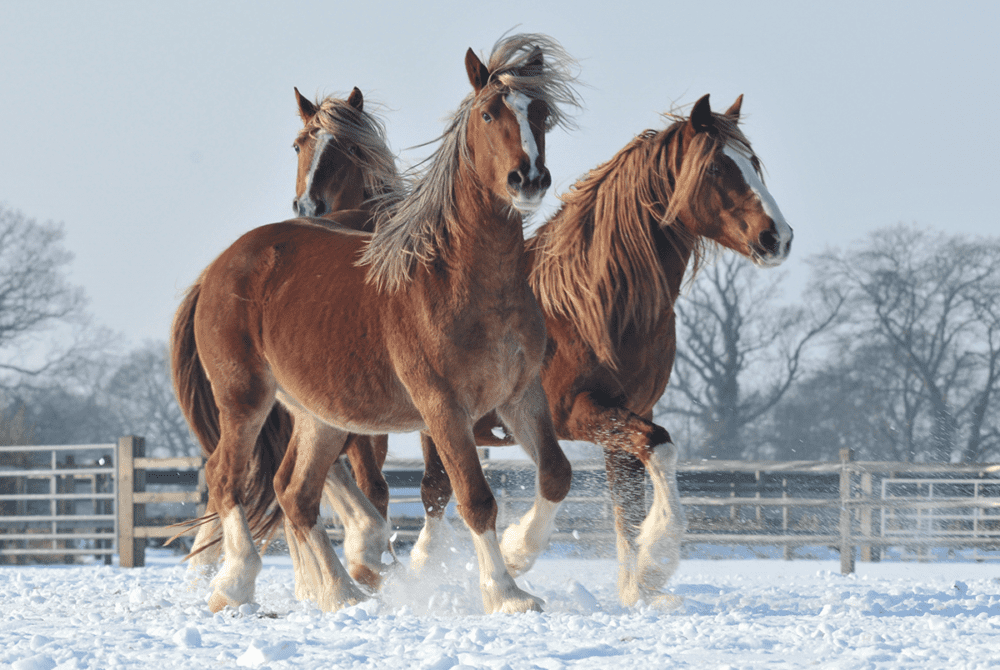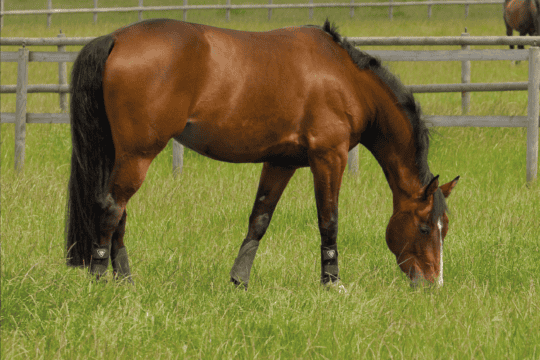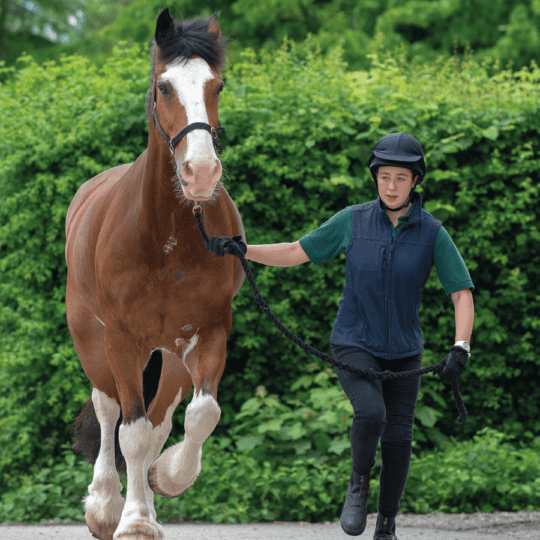Help shed some of your horse’s weight this winter
Posted 22nd December 2021
Vet Nicky Jarvis explains why winter can be a good time to help your horse shed some extra pounds and shares her seasonal tips to support healthy, sustainable weight loss

As temperatures drop and plant growth slows, horses in the wild naturally lose weight, which they regain in spring. Our interference with this seasonal fluctuation is thought to have contributed to the high number of overweight horses in the UK. Through overuse of supplementary feeding and rugging during the colder months, many domestic horses go into spring already overweight, making weight management a real uphill struggle for the year ahead. So, what can you do to help your horse come out of winter in the best position?
Reality checks
The first step to achieving a healthy weight for your horse is recognising when action’s needed. It’s easy to miss weight gain when you see your horse every day, and the prevalence of overweight equines can mean that being fat seems normal rather than unhealthy.
If you’re unsure how to objectively assess your horse’s condition, now’s the perfect time to give it a go. Body condition scoring involves getting hands-on and systematically feeling parts of your horse’s body, then calculating where he is on a body condition score scale. At Redwings we use a 0–5 scale, where 0 is very poor, 5 is very fat and anything over 3 is considered overweight. An alternative 1–9 point scale’s also in regular use, where a score greater than 7 is considered overweight.
There are useful condition scoring videos online and don’t be afraid to ask your vet, farrier or other equine professional for advice, too. These professionals often deal with some of the negative consequences of obesity, such as laminitis or musculoskeletal strain, and are keen to support owners with weight management.
Food for thought
Reduced grazing may mean you need to offer other types of feed, providing more control over your horse’s calorie intake. Horses need around 2% of their bodyweight in dry matter each day to maintain condition. Adjust forage weight according to its dry matter percentage and remember haylage has a higher water content than hay, so must be fed at a slightly increased weight to achieve the 2%.
Daily intake can be reduced to 1.5% of bodyweight to help facilitate weight loss. Horses should never be fed less than 1.5% of their bodyweight unless on specific veterinary advice because there’s a risk of serious health conditions developing. Crash dieting isn’t appropriate or safe for any equine.
Even in winter, many horses thrive solely on forage, a high-quality balancer and access to a salt lick. Unless your horse is in hard work or struggles to keep on weight, it’s unlikely he’ll need supplementary feeding – simply opt for a low-calorie balancer if you’re watching your horse’s weight. A forage-based diet has many benefits…
- high-fibre rations are natural for horses and optimise gut health
- horses spend more time chewing forage than hard feed, keeping them occupied for longer
- forage can be fed in small-holed haynets or hayballs to increase eating time
- chewing forage supports dental health, but make sure your horse’s teeth are checked at least annually by a qualified professional
- digesting forage produces more body heat from gut bacteria than bucket feed
Always make dietary changes gradually and monitor your horse carefully. For veterans who struggle to chew forage, high-fibre cubes can be fed as an alternative to hay. If soaking hard feed, remember to weigh it as dry matter first.
Learn what else you can do to help manage your horse’s weight this winter in February Horse&Rider on sale 30 December 2021











